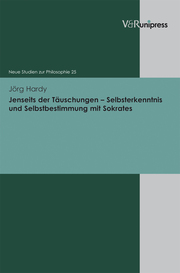Detailansicht
Jenseits der Täuschungen - Selbsterkenntnis und Selbstbestimmung mit Sokrates
Neue Studien zur Philosophie 25
ISBN/EAN: 9783899716504
Umbreit-Nr.: 1294629
Sprache:
Deutsch
Umfang: 465 S.
Format in cm: 3.7 x 24.6 x 17
Einband:
gebundenes Buch
Erschienen am 16.02.2011
Auflage: 1/2011
€ 89,00
(inklusive MwSt.)
Nachfragen
